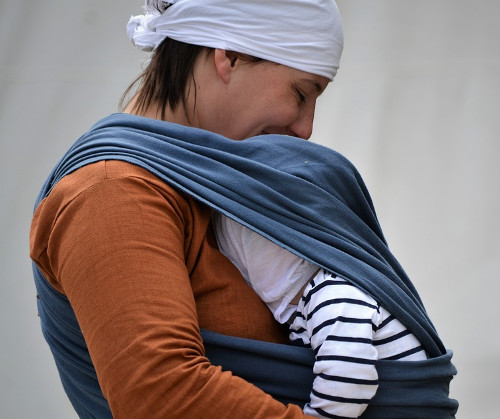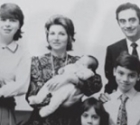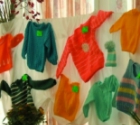Image courtesy of Pixabay
Becoming a parent is both exciting and scary. For those of us with disabilities, parenthood can mean special challenges. With thoughtful preparations, you can begin the journey with confidence.
First of all, it’s important to prepare your home for the baby’s arrival. While it may seem there is plenty of time before your little one is crawling, those days will be here in the blink of an eye. Besides, it’s best to accomplish what you can while you aren’t sleep deprived and trying to perform tasks between diaper changes and feedings.
Carefully ensure your home is a safe haven. Your baby will manage to get scrapes and bruises even with your best efforts, but you’ll have peace of mind by eliminating major hazards. It’s important to install baby-proof locks on cabinets and toilets, and baby gates are a great way to corral children away from stairs and other unsafe areas. Large pieces of furniture and televisions
should be secured so your child can’t topple them. Redfin also recommends securing cords, such as electrical cords and those on window coverings. Also evaluate general safety in the home by installing or checking your smoke and carbon monoxide detectors, and make sure your fire extinguisher is in good working order. Follow the manufacturer’s instructions for maintenance on safety devices.
You’ll also need to add good equipment to your nursery ahead of baby’s arrival. Thankfully, there are some ingenious devices to assist parents with disabilities. According to experts cited by New Mobility, a French door-style crib can be a boon. You also can employ a standard crib by modifying the door so that it swings open. Consider cribs with electronic elevation for the added advantage of adjustable mattress height.
Feeding can be a challenge, but modified high chairs simplify the task. NIDirect notes that altered designs with better stability, adjustable heights, parts that come off easily for cleaning, and easy-to-manipulate straps make a world of difference.
Cleverly modified baby carriers and wraps are also available. For instance, some car seats offer mechanisms for easy, one-handed release. Baby seats come in designs for attaching to wheelchairs, and there are strollers specially made to clip to a wheelchair frame. According to some experts, you might prefer a sling or harness for carrying your baby, allowing your hands and arms to remain free.
Being creative is often a key in solving your problems; for example, you may find it easiest to play with your baby in the crib so you can stay seated. You can employ other equipment to help with transitioning your baby from the crib to a stroller, or from crib to floor. Chances are that you’re used to thinking outside the box and will overcome challenges with clever solutions.
However, you may find it necessary to reach out for help at some point. A physical therapist or occupational therapist can offer practical advice. Some studies show parents have great success finding assistance through organizations such as Head Start or Centers for Independent Living.
It’s important to ask for help if you hit a wall. In order to maintain your well-being when baby arrives, it’s vital to proactively tend to your own needs. Rest when your baby naps, plan your big chores for the time of day you have the most energy, and keep your home organized in a way that encourages efficiency.
Congratulations on this most important adventure! Your life is about to change, and it’s an extraordinarily exciting and frightening time. Thankfully, these strategies will have you well prepared to face parenthood.
ashley@disabledparents.org
Disabledparents.org
PARENTHOOD
Preparing for parenting as someone with a disability
Ashley Taylor
Becoming a parent is both exciting and scary. For those of us with disabilities, parenthood can
mean special challenges. With thoughtful preparations, you can begin the journey with
confidence.
First of all, it’s important to prepare your home for the baby’s arrival. While it may seem there
is plenty of time before your little one is crawling, those days will be here in the blink of an eye.
Besides, it’s best to accomplish what you can while you aren’t sleep deprived and trying to
perform tasks between diaper changes and feedings.
Carefully ensure your home is a safe haven. Your baby will manage to get scrapes and bruises
even with your best efforts, but you’ll have peace of mind by eliminating major hazards. It’s
important to install baby-proof locks on cabinets and toilets, and baby gates are a great way to
corral children away from stairs and other unsafe areas. Large pieces of furniture and televisions
should be secured so your child can’t topple them. Redfin also recommends securing cords, such
as electrical cords and those on window coverings. Also evaluate general safety in the home by
installing or checking your smoke and carbon monoxide detectors, and make sure your fire
extinguisher is in good working order. Follow the manufacturer’s instructions for maintenance
on safety devices.
You’ll also need to add good equipment to your nursery ahead of baby’s arrival. Thankfully,
there are some ingenious devices to assist parents with disabilities. According to experts cited by
New Mobility, a French door-style crib can be a boon. You also can employ a standard crib by
modifying the door so that it swings open. Consider cribs with electronic elevation for the added
advantage of adjustable mattress height.
Feeding can be a challenge, but modified high chairs simplify the task. NIDirect notes that
altered designs with better stability, adjustable heights, parts that come off easily for cleaning,
and easy-to-manipulate straps make a world of difference.
Cleverly modified baby carriers and wraps are also available. For instance, some car seats offer
mechanisms for easy, one-handed release. Baby seats come in designs for attaching to
wheelchairs, and there are strollers specially made to clip to a wheelchair frame. According to
some experts, you might prefer a sling or harness for carrying your baby, allowing your hands
and arms to remain free.
Being creative is often a key in solving your problems; for example, you may find it easiest to
play with your baby in the crib so you can stay seated. You can employ other equipment to help
with transitioning your baby from the crib to a stroller, or from crib to floor. Chances are that
you’re used to thinking outside the box and will overcome challenges with clever solutions.
However, you may find it necessary to reach out for help at some point. A physical therapist or
occupational therapist can offer practical advice. Some studies show parents have great success
finding assistance through organizations such as Head Start or Centers for Independent Living.
It’s important to ask for help if you hit a wall.
In order to maintain your well-being when baby arrives, it’s vital to proactively tend to your own
needs. Rest when your baby naps, plan your big chores for the time of day you have the most
energy, and keep your home organized in a way that encourages efficiency.
Congratulations on this most important adventure! Your life is about to change, and it’s an
extraordinarily exciting and frightening time. Thankfully, these strategies will have you well
prepared to face parenthood.
Both Ashley Taylor and her husband have disabilities. They live in Eugene, Oregon. Ashley is a
freelance writer, photographer, and advocate for people with disabilities. She created
DisabledParents.org to provide information and resources to other parents with disabilities.
When she isn’t working, she enjoys spending time with her husband and two children.
ashley@disabledparents.org
Disabledparents.o

 Reunited by ESRA Website
Reunited by ESRA Website Advertisers Directory 195
Advertisers Directory 195 Milestones 195
Milestones 195 A Funny Thing happened
A Funny Thing happened  a village for young people with special needs
a village for young people with special needs NETANYA NEWS
NETANYA NEWS